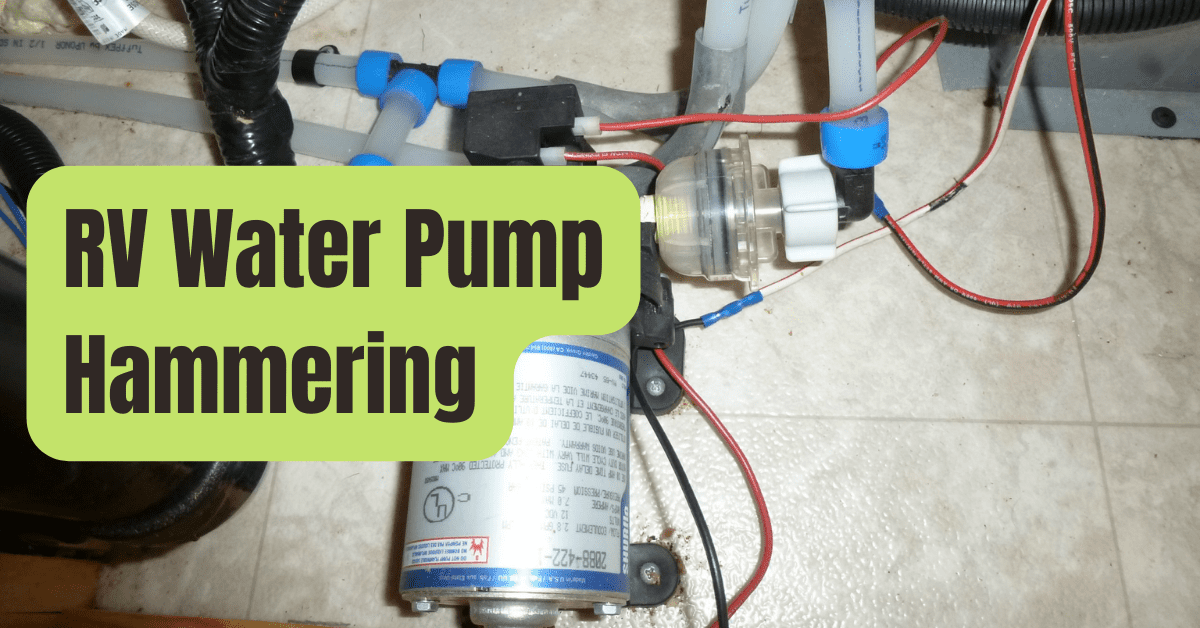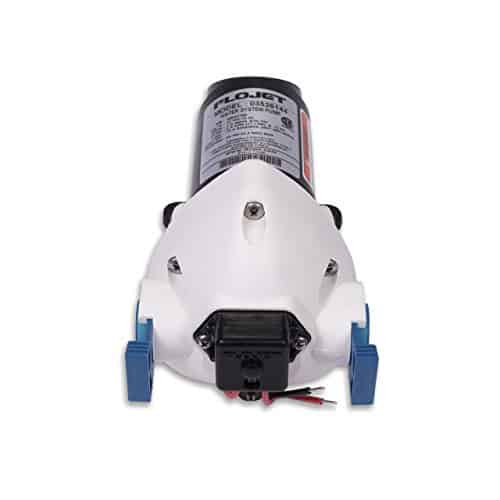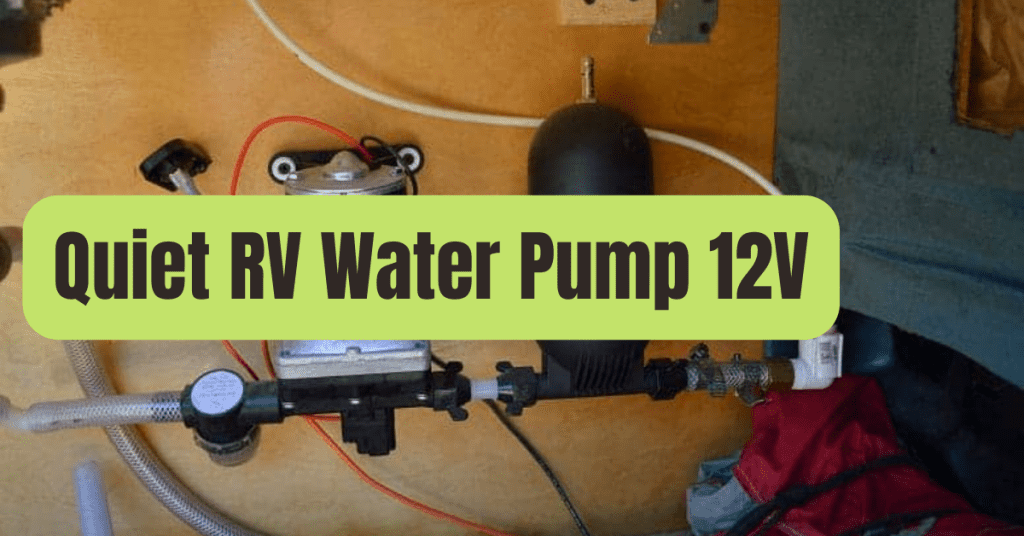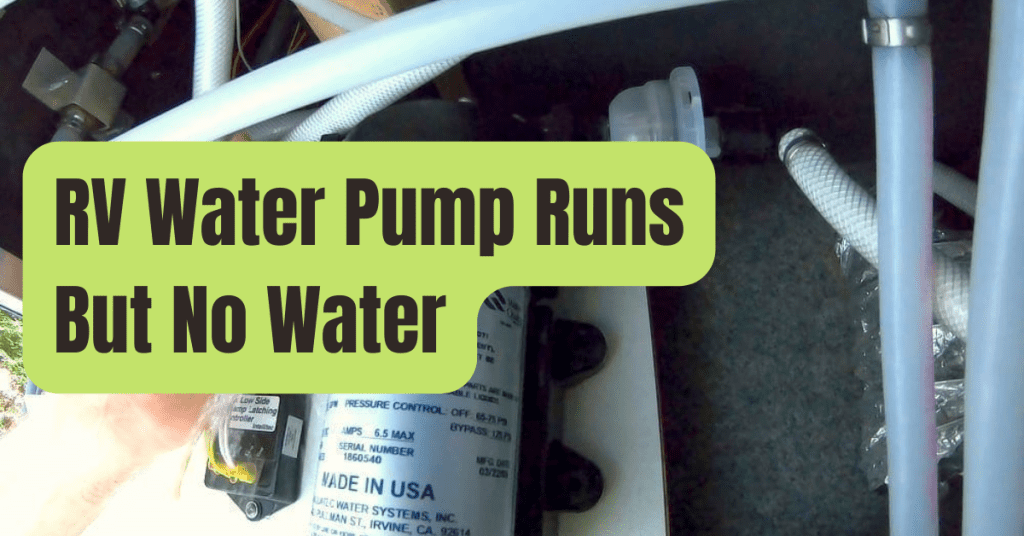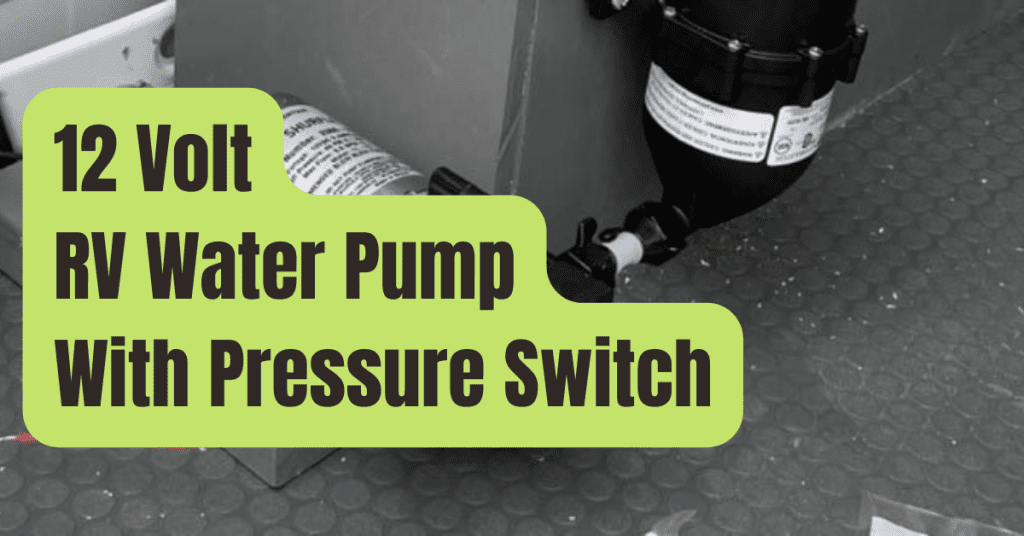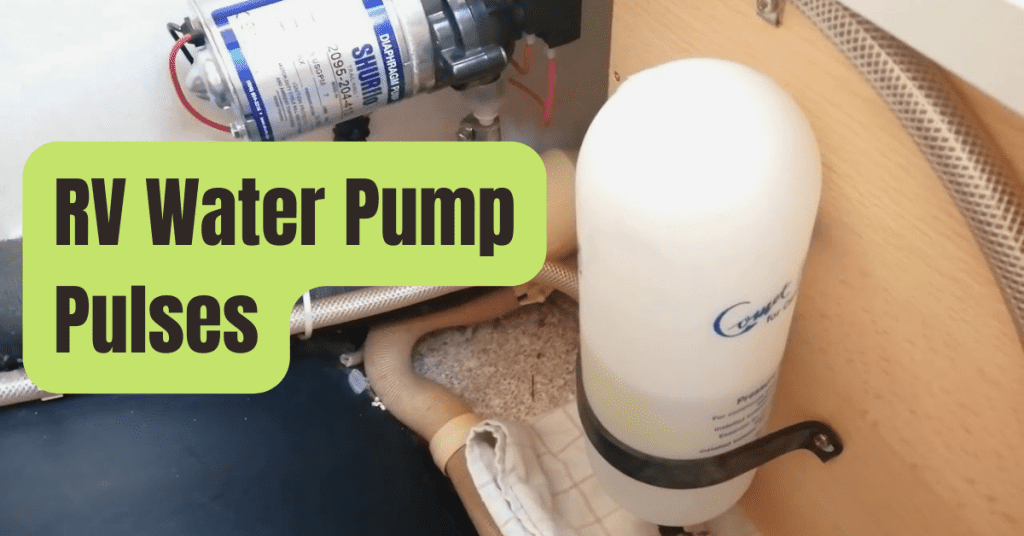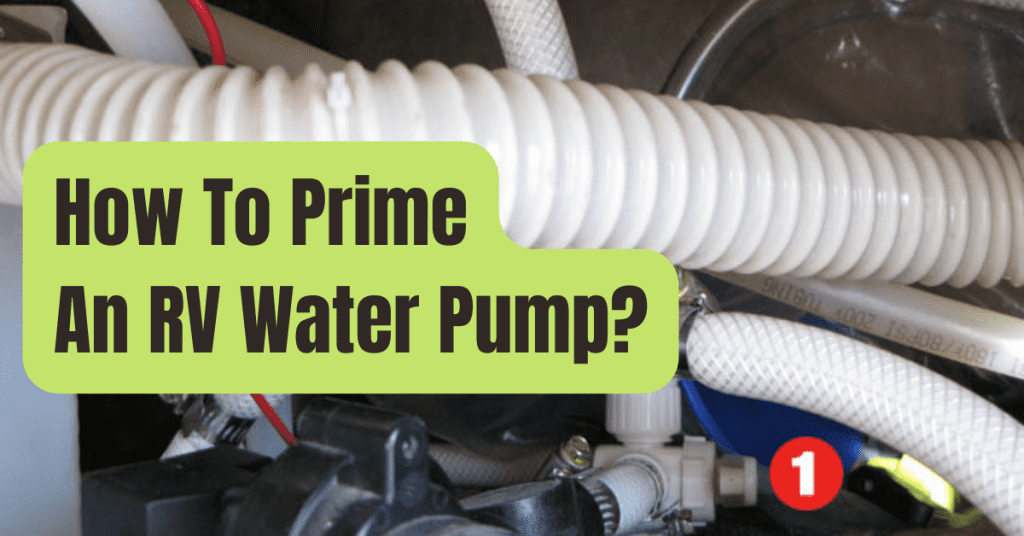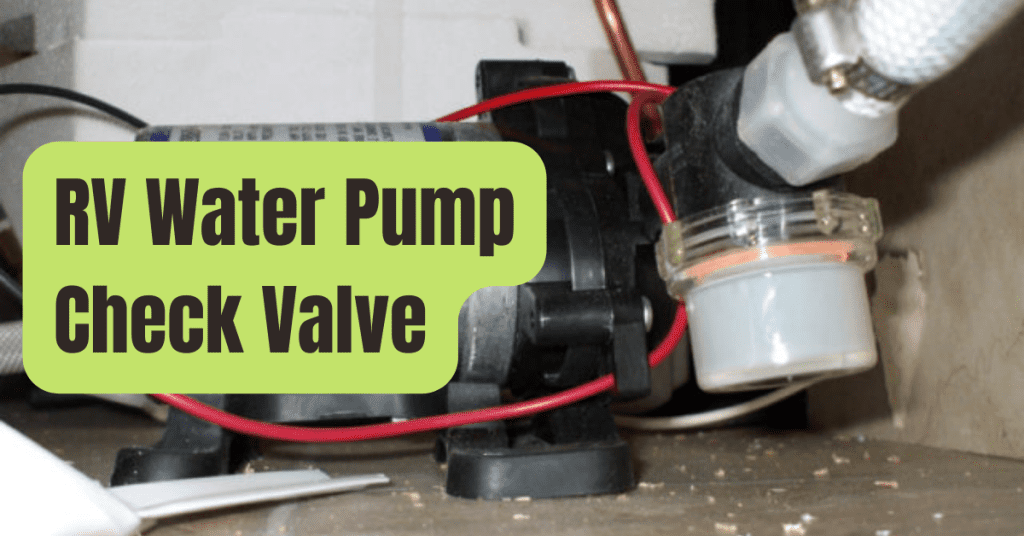You probably already know how important it is to have a water system that is operational whether you are an active RVer like us or someone who is just starting started, which is where we were not too long ago.
The ability to store water and pump it to your sinks, toilet, and shower is essential to having a pleasant experience when traveling in an RV.
Having saying that, it is important to keep an eye out for a number of typical problems that are related with RV water pumps.
A water pump that pulses in an RV is not always an indicator that there is anything wrong with the system since it is a pretty regular occurrence.
While the system is being used, the pump will exhibit pulsating motion as it works to maintain a constant water pressure.
Simply put, pulsing refers to the process of the system’s pressure alternating between high and low levels.
A pulsating RV water pump is an irritation that can be handled, but it is not always an issue that has to be rectified.
However, before you decide whether or not you need to address the issue, you should first try to have a better understanding of the factors that are contributing to its occurrence in the first place.
Why Does an RV Water Pump Pulsate and How Can It Be Fixed?
It is the job of the water pump in your RV to keep the water pressure in your pipes at a consistent level.
Because of this, when you run water through the kitchen sink, the water pump is hard at work making sure that the water gets where it needs to go.
Because of this, the pump is only supposed to operate when there is water running through it.
If you turn on the water in your recreational vehicle (RV), you will most likely hear the pump turn on to make up for the loss of pressure in the system.
Because there is a greater need to keep the water pressure at a high level while you are drawing the maximum amount of water from the sink, the pump will operate continually.
If the water is being drawn from the tank at a rate that is less than full draw, the water pump in your RV can start to pulse.
Your water pump could turn on and off at random intervals since there isn’t a consistent, high demand on the pressure in the system.
This is because the demand for the pressure in the system isn’t constant.
This pulsating effect may be created when the on and off states are alternated in this manner.
Again, this is something that happens rather often and is not necessarily something that signals there is an issue with the system.
This is something that, for many people who live in RVs, is merely an oddity that comes with the territory and eventually becomes background noise.
Exist Any Other Possible Reasons for the Pulsing?
There are a few less frequent reasons that might suggest a more major problem with the system.
The most typical reason for a pulsing RV water pump is simply a fluctuating demand on the pressure in the system.
However, there are a few other, less common causes as well.
These are the following:
- A leak in the system: If your system has a leak in it, then the pressure inside the system may be difficult for your pump to keep up with if it is trying to maintain. Any kind of leak in the system will cause the overall pressure to decrease, even if the leak isn’t big enough to let out enough water for you to notice it. However, any leak in the system will cause the pressure to drop. If you have reason to believe that this is the situation, you will need to investigate the possibility of a leak across the whole of the system, including the pump, the filters, and the pipes.
- The tank does not have enough water: One further reason why your water pump can be pulsing is because the tank does not have enough water in it. When the water tank is too low, which is a problem that is regularly reported by RV owners, your water pump may have difficulty pulling water from it, which may cause it to pulse as it struggles to adjust for what it believes to be low pressure. This is a typical problem that is reported by RV owners.
- Blockage in the system: Another possible reason for the pulsing that you are seeing with your water pump is that there is a blockage somewhere, most likely the filter, in the system. It is not possible for obstructions in the filters of your RV’s water system to cause the water flow to become less regular throughout the system, which would lead your water pump to get confused about what it ought to be doing. Checking and clearing out your system’s water filters is all that is required to rectify this situation.
Is There a Way to Prevent the Beating That Comes From My RV’s Water Pump?
The pulsating is an issue that is very innocuous but quite prevalent, and it may be rather annoying to have to deal with it.
The good news is that there is a remedy for this predicament.
Your recreational vehicle’s water system may benefit from having an accumulator tank installed since it may assist to manage the water’s pressure and make the pump operate more smoothly.
Sale
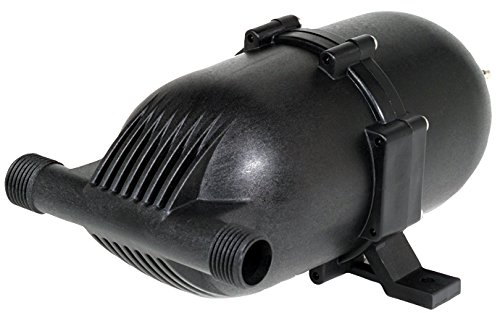
SHURflo 182-200 Pre-Pressurized Accumulator Tank,Black, 9.1″ x 4.8″ x 3.8″
- Reduces the amount of pump cycling
- The water faucet’s pulsations are smoothed out.
- Having a diaphragm already built in and pre-pressurized to 30 PSI
An accumulator tank is a tiny reservoir that is often built out of plastic and has a compressed bladder located inside of it.
The accumulator tank’s ability to absorb and control both spikes and decreases in system pressure is made possible by a pressurized bladder inside the tank.
In order to keep the overall system pressure at a consistent level, the pressurized bladder’s pressure will change while the pump operates.
This helps to reduce the spikes and dips that may otherwise occur in your system, which are the root cause of the pulsing that you are now experiencing.
The elimination of the pulsing problem is the primary advantage that comes with the installation of an accumulator tank, but there are many other benefits as well.
Equally as significant, though, is the accumulator tank’s capacity to lessen the amount of cycling that your pump is required to do, so cutting down on the number of times it must do so.
Because the accumulator may absorb a significant portion of the decrease in pressure that is caused by turning on the faucet, the amount of work that has to be done by your pump to maintain the appropriate pressure level will be reduced.
Your pump will last longer if you have an accumulator tank, which is another advantage of having one.
It goes to reason that the lifetime of your pump will be extended if it operates fewer times per day and at a reduced level of intensity when it does operate.
The burden of your pump may be decreased by using an accumulator tank, which in turn serves to extend the pump’s lifespan.
Last but not least, an accumulator will assist in lowering the amount of power that is used from your battery as a result of employing the water system.
Because of the fact that an accumulator tank relies only on the compressed bladder to perform its functions, an external power source is not required.
In addition, if you shorten the length of time that your pump is required to work, you will effortlessly be able to cut down on the amount of electricity that is used by your water system.
Is It Challenging Or Expensive To Put In Place An Accumulator Tank?
Installing accumulator tanks on your water pump is a very straightforward process.
Due to the fact that they are so little, they may be fitted almost anyplace inside the pressurized side of your plumbing system.
Accumulator tanks are available at prices that are not prohibitively expensive.
The size and quality of the materials chosen will determine the pricing, which might range anywhere from thirty dollars to one hundred dollars.
You won’t have any trouble locating them on Amazon.com.
The more costly versions are often constructed with materials that are more resilient, resulting in a longer product lifetime.
Is it a Bad Thing That It’s Pulsing?
The throbbing that you could feel coming from the water pump in your RV is an event that is pretty frequent and completely safe.
Even though it makes a very unpleasant sound and the water flow is irregular when the tap isn’t at full draw, these are both surface level faults and not difficulties that will generate major problems in the future.

Having stated that, the inconvenient situation might be somewhat frustrating.
This may be particularly true if the reason of the problem is that your pipes are rattling.
Pipes in an RV are sometimes positioned in such a way that they are excessively near to one another or to a wall.
It is possible for the pipes to vibrate whenever this pulse takes place.
If they are positioned too closely to one another or to a wall, they might make a cacophony that is much louder and more obnoxious than the one that was created by the pulsating pump in the first place.
Because of this problem, we had to resecure the pipes that connected to the pump in order to lessen the rattling sound that was being produced by the pulsing pump.
Adding insulation to the pipes is one way to lessen the rattling sound they make.
By applying a thin layer of insulation to the pipes that are producing the rattling noise, it will be possible to reduce the volume of the noise or perhaps get rid of it totally.
Obviously, opening up the walls and providing insulation to each and every one of your pipes is a more difficult alternative than just building an accumulator tank, which is probably the simpler choice.
On the other hand, it’s possible that the only pipes in your RV that require insulation are the ones that are directly linked to the water pump.
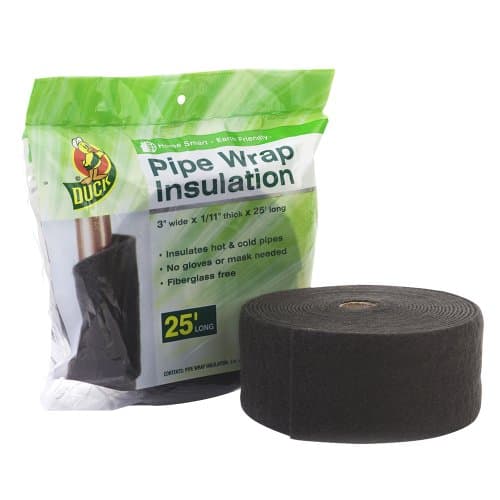
Duck Brand 1285244 Pipe Wrap Insulation for Hot or Cold Pipes, 3-Inch Wide x 1/11-Inch Thick x…
- Providing insulation for both hot and cold pipes
- No gloves or masks required
- Substance devoid of fiberglass, allowing for manual assembly without risk of skin irritation

